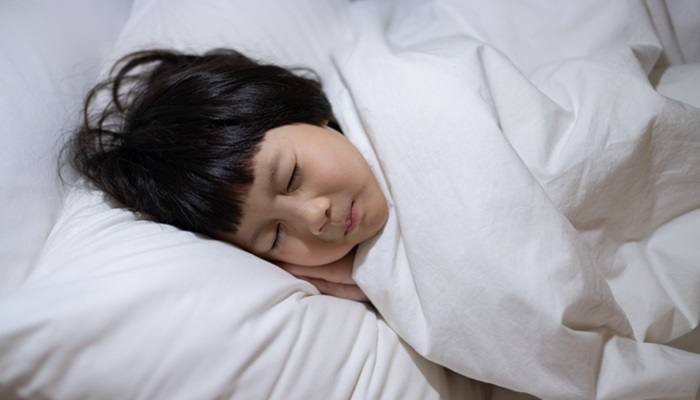Epilepsy is the most common cause of seizures in children. This condition occurs when there is a disturbance in electrical activity in the brain. During a seizure, a child’s muscles may move uncontrollably, and they may lose consciousness. Some children may appear to have a vacant stare and confusion until the seizure ends.
It is important to remember that not all seizures in children are caused by epilepsy. Therefore, it is essential to have your child examined by a specialist in neurology or pediatric neurology to obtain an accurate diagnosis.
Contents
Types of Epilepsy in Children
- Absence epilepsy: Characterized by sudden vacant stares, appearing confused, and unresponsive when spoken to.
- Rolandic epilepsy: Occurs when falling asleep or waking up, characterized by uncontrolled muscle movements typically on one side of the body.
- Juvenile myoclonic epilepsy: Often occurs during puberty, characterized by seizures in the hands, typically occurring upon awakening.
- Infantile spasms: This condition causes infants to have spasms where they may bend or stretch uncontrollably. These seizures usually last only a few seconds but can occur several times with short intervals in between.
- Lennox-Gastaut syndrome: This condition can cause sudden stiffening of the child’s muscles, which immediately become limp afterward. When it occurs, the child’s consciousness is also lost.
Diagnosing Epilepsy in Children
To diagnose epilepsy in children, a neurology specialist will perform several examinations, including:
- Medical history recording: The doctor will carefully record your child’s health history, including their condition during pregnancy and childbirth. Family history of epilepsy, as well as any history of accidents or head injuries in the child, should also be communicated to the doctor.
- Observation of the child during a seizure: The doctor will ask parents for detailed information about the seizures experienced by the child, such as duration and symptoms.
- Physical examination: Physical examinations, such as muscle strength and reflex tests, will also be conducted to assess the child’s brain function. In addition, sensory and memory tests will also be performed.
- Blood tests: Blood tests are useful for detecting any other diseases the child may have that were previously undetected. These diseases could be the cause of the seizures.
- Imaging tests: Imaging tests such as MRI and CT scans may also be performed to assess the condition inside the body. CT scans are performed to detect any signs of injury that may cause seizures, while MRI scans are performed to visualize the brain.
- Electroencephalogram (EEG): EEG is a test used to observe the brain’s electrical activity. In this test, electrodes will be placed on the child’s scalp, and the electrical waves in the brain will be examined to determine the type of seizures experienced. This examination can determine whether the child’s seizures are caused by epilepsy or not.
Treatment of Epilepsy in Children
The primary treatment option for epilepsy in children is the consumption of antiepileptic medications. These medications can relieve epilepsy symptoms and reduce the frequency of seizures. Until now, the duration a child needs to take epilepsy medication cannot be determined precisely because each child’s condition is different. The doctor will determine when the child can stop taking the medication. Generally, treatment is only stopped after the child has not experienced any seizures for several years after starting treatment.
If medication consumption does not improve the child’s epilepsy condition, other treatment options such as brain surgery and the installation of medical devices such as vagal nerve stimulators and responsive neurostimulators can be considered. The doctor may also recommend a specific diet for the child, such as consuming foods with a low glycemic index.
Meet our Neurologist to Treat Epilepsy
Impact of Epilepsy on Children’s Development
Epilepsy in children and its treatment can affect their development and daily activities, including:
1. Behavior
For some children, experiencing epilepsy and taking epilepsy medication will not affect their behavior. However, in some cases, parents may notice that their child becomes more irritable and unwilling to socialize. However, not all children experience this. Some of them can respond well to their condition.
2. Learning ability
Most children with epilepsy have the same level of intelligence and thinking ability as other children. However, some other children may have difficulty learning, which can be caused by:
- Certain health disorders
- Other factors related to seizures, such as fatigue
- Side effects of medication
- The condition that is the main cause of the epilepsy experienced
- Emotional or social factors
If you feel that epilepsy in your child affects their learning ability, you should consult with their attending physician.
3. Physical health
Epilepsy should not prevent children from engaging in physical activities such as sports. In fact, exercise is believed to be good for the development of children with this condition. Not only is it good for their physical health, but exercise is also good for their emotional health, including its effects on controlling seizures. You also don’t need to worry about letting your child exercise because this activity rarely triggers seizures.
Various types of sports can also be done, as long as they do not make the child too tired and dehydrated, leading to a decrease in blood sugar levels.
If your child frequently experiences seizures, do not hesitate to consult a neurology specialist. Make an appointment with a doctor at Mandaya Royal Hospital Puri through Whatsapp Chat, the Book Appointment page, or the Care Dokter application that can be downloaded from Google Play and the App Store. In addition to appointments, you can also monitor queue numbers and get other complete information there.


